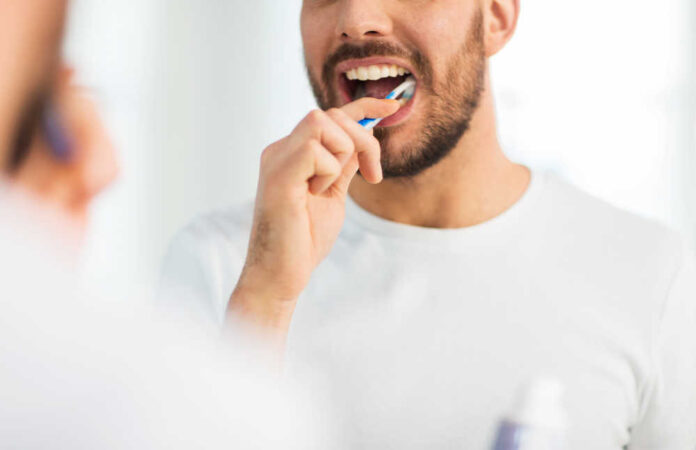
Brushing your teeth and tongue daily can help remove bacteria and plaque buildup. But that means you can transfer the residue and germs from your mouth to your brush. Worse still, toothbrushes are often kept in the bathroom, where germs can thrive.
This article will discuss five methods for disinfecting a toothbrush that guarantees its cleanliness and safety every time you use it.
Use Hot Water
Running hot water over the bristles of your toothbrush before and after each use is the simplest and most effective way to disinfect it. Doing so eliminates the potential for bacteria to grow on the toothbrush while not brushing your teeth. In addition, it gets rid of all new bacteria accumulated while you brush.
When switching out toothbrushes, most people only need to run theirs under clean water to kill any germs but be aware that the water must be scalding hot to generate steam.
Use Mouthwash
To kill any remaining germs on your toothbrush, try soaking it in antibacterial mouthwash. Keep in mind that this could shorten the life of your toothbrush since many of these mouthwashes have harsh ingredients that could increase how fast your bristles break down.
For this approach, after brushing your teeth, you let your toothbrush rest in a cup of mouthwash for two to three minutes, bristles down.
Use Denture Cleanser
Denture cleaner contains antimicrobial chemicals that kill the germs and plaque that cause bad breath. As a result, they can be used to kill plaques and germs on your brush.
Denture cleansers should not be reused. Cleaning your toothbrush requires only half a cleansing tablet in water and soaking your toothbrush for ninety seconds.
Use Hydrogen Peroxide
One study from 2011 found that soaking your toothbrush in a tiny cup of hydrogen peroxide is a cheap and effective alternative to prevent the spread of bacteria.
Remember to change the peroxide daily and place your toothbrush bristles into the cup.
Use a UV Brush Sanitizer
You can also get a UV sanitizer that is designed to disinfect toothbrushes.
One study found that UV light was better at sterilizing toothbrushes than other solutions when used in UV light chambers made for that purpose.
This gear can be expensive, and it is optional for safe brushing. All the other options work almost as well if you find a UV machine too costly to purchase.






















